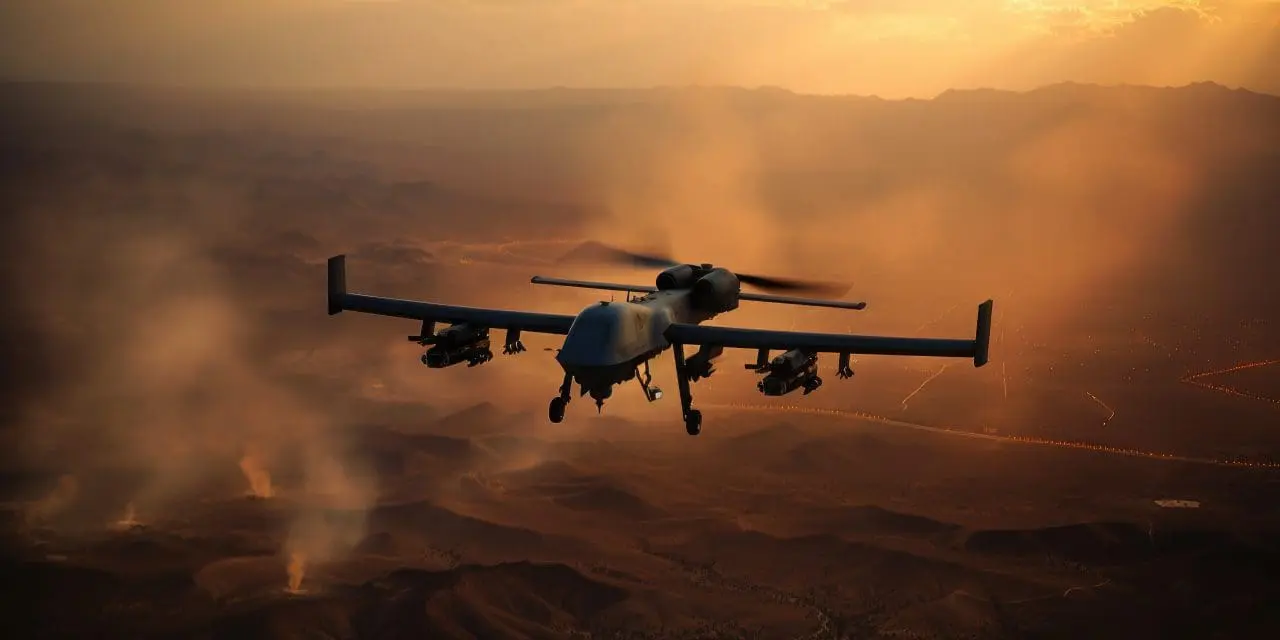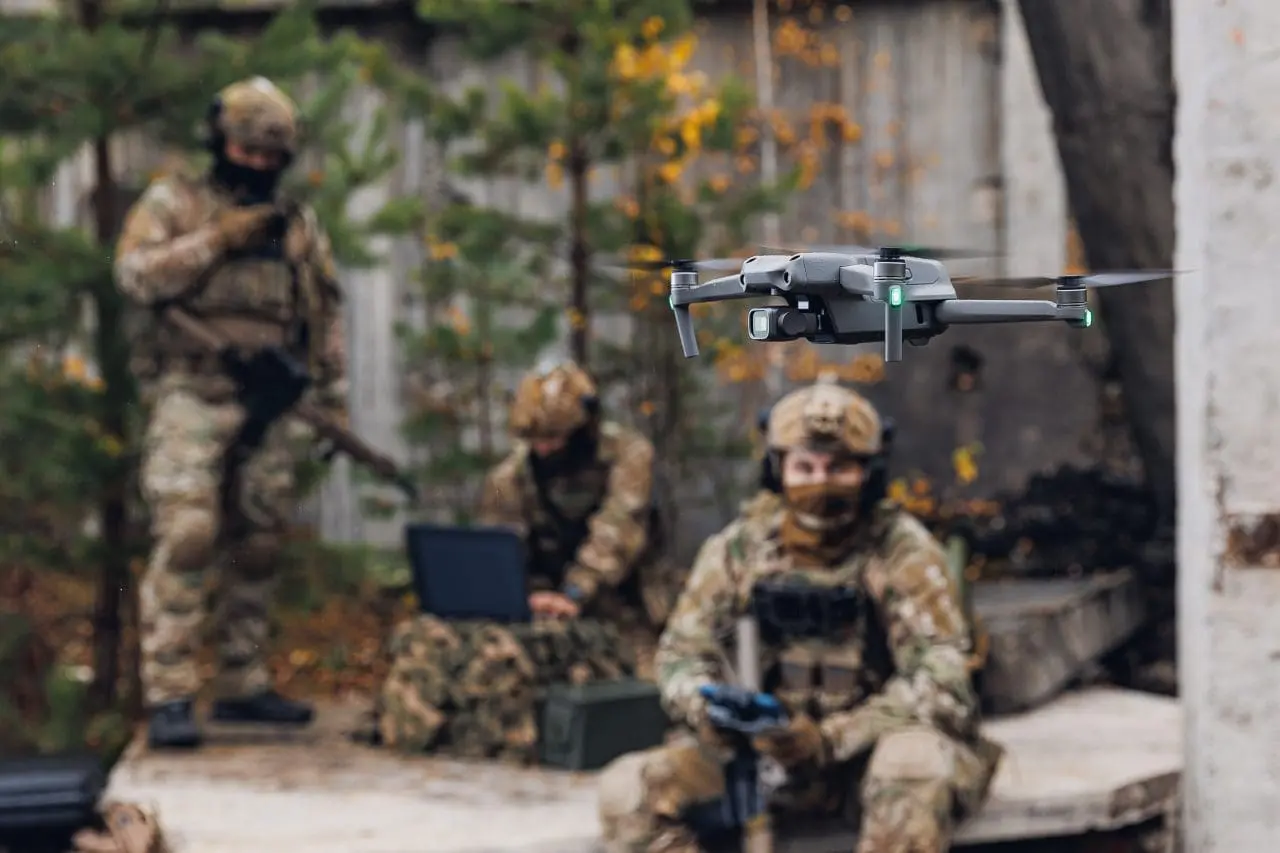

The introduction of autonomous weapons designed to fly without human operators has caused considerable debate among both military experts and civilians alike. On one hand, AI-guided drones can offer a range of advantages, giving militaries the ability to target enemy positions with great accuracy and speed. On the other hand, there are ethical questions to consider regarding the use of these weapons, as well as practical concerns about their effectiveness in battle.
As unmanned weapon systems become increasingly advanced, they will be capable of making decisions on their own, without human input. This raises many fascinating questions: how will these weapons be programmed? Will they only attack military targets or could they also be used against civilians? What rules would govern their behaviour in combat? It is important to understand both the potential risks and benefits associated with autonomous weapons before we can properly assess whether drone wars could become a reality.
Unmanned combat systems offer a range of advantages to militaries looking to increase their effectiveness in battle. By removing the need for human operators, they can be operated in much more dangerous environments or used for longer periods of time. They also offer greater accuracy than traditional weapons, allowing precise targeting without risking civilian casualties. In addition, AI-guided drones have the potential to overwhelm enemy defences if deployed in large numbers.
Despite the potential benefits of using unmanned combat systems, there are also considerable risks associated with deploying drone swarms. The most obvious concern is that these weapons could potentially be used against civilian targets, causing unnecessary deaths and destruction. Additionally, there are questions about how effective these drones would be in combat due to their lack of human judgment and the potential for them to malfunction or be hacked by hostile forces. It is important that military leaders consider all of these issues before deploying drone swarms in battle.
Despite the risks associated with using autonomous weapons, many experts believe that they could offer significant advantages over traditional weapons systems. By allowing militaries to more accurately target enemy positions without risking civilian casualties, they could potentially reduce the amount of collateral damage caused by war. Additionally, drone swarms can overwhelm enemy defences much more quickly and effectively than manned aircraft, allowing militaries to gain a tactical advantage.
Although AI-guided drones could potentially reduce civilian casualties in war, there are still serious ethical concerns that need to be taken into consideration. As these weapons become increasingly autonomous, there will be difficult questions regarding who is responsible for any collateral damage caused by their actions. Additionally, there is the potential for drone swarms to cause significant disruption and terror to civilian populations if deployed indiscriminately. It is important that governments take these issues seriously before deploying unmanned combat systems in conflict zones.
In addition to their potential use in combat, drones can also be used for intelligence gathering and surveillance purposes. By allowing militaries to monitor enemy movements in real-time, drones can provide invaluable information about the location of troops and other important targets. However, there are still ethical issues surrounding the use of drones for surveillance purposes, as they could potentially lead to a violation of the privacy rights of individuals in conflict zones.
Although unmanned combat systems offer significant advantages over traditional weapons systems, it is still important that militaries take steps to reduce collateral damage during drone attacks. This could involve using smaller, more precise weapons that only target specific targets or implementing stricter rules that require military personnel to approve all attacks. It is also important to ensure that drone swarms are programmed in such a way that they only attack military targets and not civilians.
As technology continues to develop, the possibility of fully autonomous drone armies is becoming more and more realistic. By removing the need for human operators, AI-guided drones could be programmed to respond to specific commands and complete missions without any input from humans. This could allow militaries to deploy large numbers of unmanned combat systems into enemy territory with greater speed and precision than ever before.
However, despite the potential benefits associated with drone swarms, there are still significant ethical issues that need to be taken into consideration before these weapons can be deployed in battle. For example, how would an autonomous weapon differentiate between military and civilian targets? Additionally, what rules would need to be in place to ensure that these weapons are used responsibly and not abused by hostile forces?
Only once these ethical issues have been addressed can the possibility of fully automated drone armies become a reality. Until then, militaries will need to continue relying on traditional weapons systems for their operations. However, as technology continues to improve, it is becoming increasingly likely that AI-guided drones could soon become an integral part of modern warfare.


